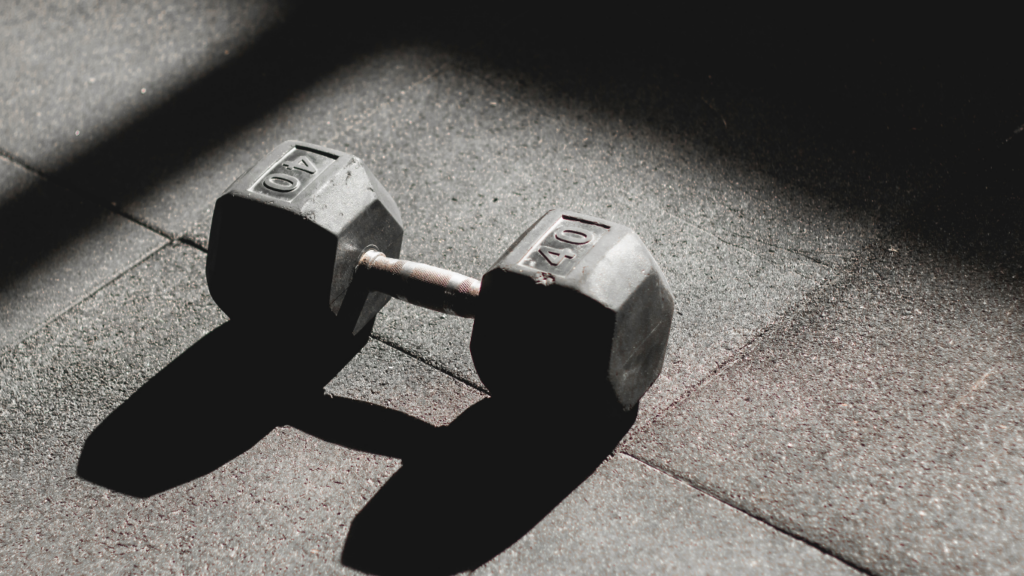Embarking on a journey to enhance strength and muscle development requires more than just pumping iron at the gym. As someone passionate about fitness and nutrition, I’ve delved into the realm of optimal dietary strategies to fuel muscle growth effectively.
In this article, I’ll share valuable insights into nutritional guidelines that can significantly support your strength training goals. Understanding the pivotal role of nutrition in achieving muscle gains is key to maximizing your workout efforts.
Through my own experiences and research, I’ve uncovered the importance of specific nutrients and meal timing in promoting muscle recovery and growth. By incorporating these evidence-based guidelines into your dietary plan, you can elevate your fitness journey and unlock your body’s full potential.
Understanding Strength and Muscle Development
Exploring the realm of strength training and muscle growth is both fascinating and essential for achieving fitness goals. When aiming to enhance strength and muscle development, understanding the underlying principles is key.
Muscle growth occurs when muscles are subjected to stress through resistance training. This stress leads to microscopic damage to muscle fibers, prompting the body to repair and build stronger muscles in response.
In this context, muscle development is a dynamic process that necessitates proper nutrition to support muscle repair and growth. Essential nutrients play a crucial role in this process by providing the building blocks necessary for muscle recovery and adaptation.
Protein, in particular, is vital for muscle repair as it contains amino acids essential for synthesizing new muscle tissue. It’s important to consume an adequate amount of protein regularly to support muscle development effectively.
Moreover, carbohydrates are essential for replenishing muscle glycogen stores, which serve as a primary energy source during intense workouts. By ensuring a balanced intake of carbohydrates, individuals can optimize their training performance and promote muscle growth.
Fats are also important for overall health and hormone regulation, contributing to sustained energy levels during training sessions. To maximize the benefits of strength training and muscle development, it’s imperative to focus on a well-rounded nutritional approach that includes a variety of nutrient-dense foods.
By understanding the significance of proper nutrition and its impact on strength and muscle development, individuals can pave the way for achieving their fitness objectives efficiently.
Importance of Nutrition in Building Strength
Nutrition plays a critical role in enhancing strength and muscle development. For optimal results, focusing on effective dietary strategies is essential to support fitness goals. Proper nutrition not only aids in muscle recovery but also promotes muscle growth by providing the necessary nutrients for repair and adaptation.
Essential Macronutrients for Muscle Growth
When it comes to muscle growth, essential macronutrients such as protein, carbohydrates, and fats play key roles. Protein is crucial for muscle repair and growth, serving as the building blocks needed to recover from workouts and build stronger muscles.
Carbohydrates are important for replenishing muscle glycogen levels post-exercise, ensuring adequate energy stores for optimal performance. Fats, on the other hand, are essential for overall health, hormone production, and energy regulation.
Important Micronutrients for Supporting Muscle Development
In addition to macronutrients, micronutrients also play a vital role in supporting muscle development. Micronutrients like vitamins and minerals are essential for various metabolic processes that contribute to muscle growth, repair, and overall performance.
Key micronutrients include vitamin D, calcium, magnesium, and iron, which are crucial for muscle function, bone health, and oxygen transport within the body. By ensuring a well-rounded diet rich in both macronutrients and micronutrients, individuals can optimize their nutrition to support muscle development and enhance strength effectively.
Pre-Workout Nutritional Strategies
Before starting my workout routine, I ensure that my body is adequately fueled with the right nutrients to optimize performance and support muscle development. Here are some key pre-workout nutritional strategies that I follow to maximize my training sessions:
- Hydration is Key: Staying hydrated is crucial for optimal muscle function and performance during workouts. I make sure to drink an adequate amount of water before exercising to maintain hydration levels and support muscle contractions.
- Carbohydrate Loading: Consuming complex carbohydrates before a workout helps provide a sustainable source of energy. Foods like whole grains, fruits, and vegetables are part of my pre-workout meals to ensure adequate glycogen stores for sustained energy output.
- Protein Intake: Including a source of lean protein in my pre-workout meals is essential for muscle repair and growth. Foods like lean chicken, Greek yogurt, or legumes are part of my pre-workout nutrition to support muscle protein synthesis.
- Timing Matters: Eating a balanced meal containing carbohydrates and protein 2-3 hours before my workout session gives me the necessary energy to perform optimally. Additionally, consuming a small snack 30-60 minutes before exercising can provide a quick energy boost.
- Supplementation: Incorporating supplements like caffeine or creatine, under proper guidance, can enhance performance during workouts. These supplements can help improve focus, strength, and endurance when taken in the appropriate doses.
By prioritizing these pre-workout nutritional strategies, I ensure that my body has the necessary fuel to perform at its best and support muscle development effectively. Proper nutrition before exercise plays a vital role in optimizing performance and promoting muscle growth, helping me achieve my fitness goals efficiently.
Post-Workout Nutrition for Muscle Recovery
After intense workouts, giving your body the right nutrients is crucial for optimal muscle recovery and growth. Post-workout nutrition plays a significant role in replenishing energy stores and repairing muscle tissue. It’s essential to focus on specific nutrients to support these processes effectively.
- Protein Intake: Including an adequate amount of protein in your post-workout meal is essential for muscle repair and growth. Protein provides the necessary amino acids that aid in rebuilding muscle fibers that have been broken down during exercise. Sources like chicken, fish, eggs, or plant-based proteins like beans and lentils are excellent choices.
- Carbohydrates for Glycogen Replenishment: Carbohydrates are essential for replenishing muscle glycogen stores, which serve as a vital energy source during workouts. Opt for complex carbohydrates like whole grains, fruits, and vegetables to replenish glycogen levels efficiently.
- Healthy Fats for Recovery: Incorporating healthy fats like avocados, nuts, and seeds in your post-workout meal can aid in reducing inflammation and providing a steady source of energy. Balancing fats with protein and carbohydrates creates a well-rounded post-workout nutrition plan.
- Hydration for Recovery: Proper hydration is key for optimal muscle recovery. Replenish lost fluids by drinking water or electrolyte-rich beverages post-workout to support muscle function and overall recovery.
- Timing Matters: It’s crucial to consume a post-workout meal or snack within 30-60 minutes after exercise to kickstart the recovery process. This timing window allows your body to efficiently absorb nutrients and initiate muscle repair.
By focusing on a combination of protein, carbohydrates, healthy fats, and hydration post-workout, you can maximize muscle recovery, enhance growth, and support your fitness goals effectively. Prioritizing post-workout nutrition as part of your training routine can significantly impact your overall performance and progress towards achieving your strength and muscle development objectives.
Supplements to Aid Muscle Growth
When it comes to supplements to aid muscle growth, I prioritize those that have proven benefits and complement my nutrition and training regimen effectively. While proper nutrition forms the foundation of my muscle-building journey, certain supplements can provide additional support for optimizing muscle growth and recovery.
- Whey Protein: Whey protein is one of the most popular and effective supplements for muscle growth. It is a complete protein source rich in essential amino acids, particularly leucine, which plays a crucial role in stimulating muscle protein synthesis. I often include a whey protein shake post-workout to kickstart muscle recovery and repair.
- Creatine: Creatine is another supplement I incorporate into my routine to enhance strength and muscle gains. It helps increase phosphocreatine levels in the muscles, allowing for more rapid ATP production during high-intensity exercise. This leads to improved performance in the gym and supports muscle growth over time.
- Branched-Chain Amino Acids (BCAAs): BCAAs, including leucine, isoleucine, and valine, are essential amino acids that can be beneficial for muscle recovery and growth. I often consume BCAA supplements during workouts to help reduce muscle fatigue, support protein synthesis, and preserve lean muscle mass.
- Beta-Alanine: Beta-alanine is a non-essential amino acid that can enhance muscular endurance by increasing carnosine levels in the muscles. This can delay the onset of fatigue during intense training sessions, allowing me to push harder and stimulate greater muscle growth over time.
- Omega-3 Fatty Acids: While not directly linked to muscle growth, omega-3 fatty acids have anti-inflammatory properties that can aid in recovery and promote overall health. I ensure I consume an adequate amount of omega-3s through fish oil supplements or include fatty fish like salmon in my diet regularly.
By integrating these supplements strategically into my nutrition and fitness plan, I can amplify the benefits of my training efforts, promote muscle growth, and optimize recovery for continued progress towards my strength and fitness goals.



